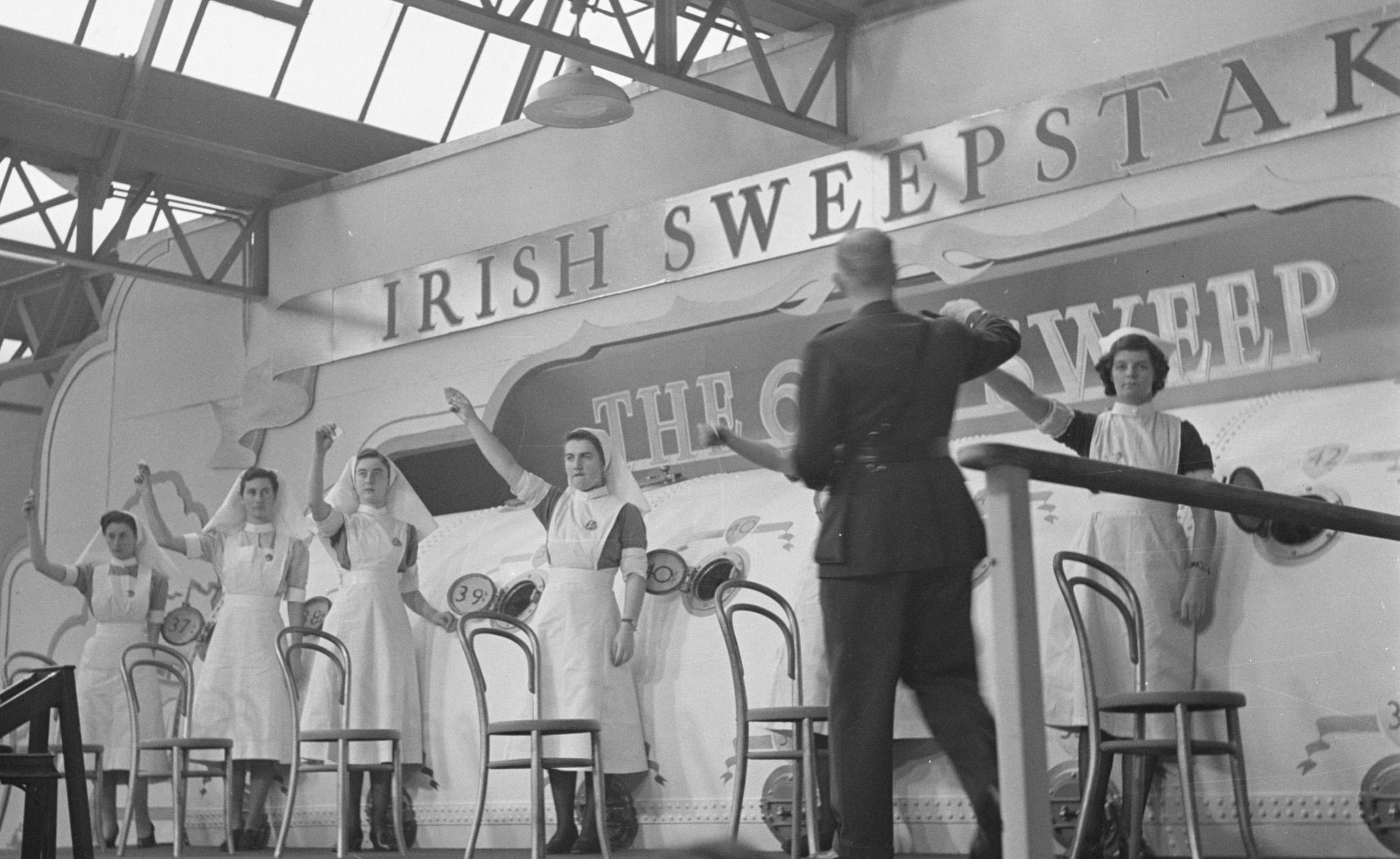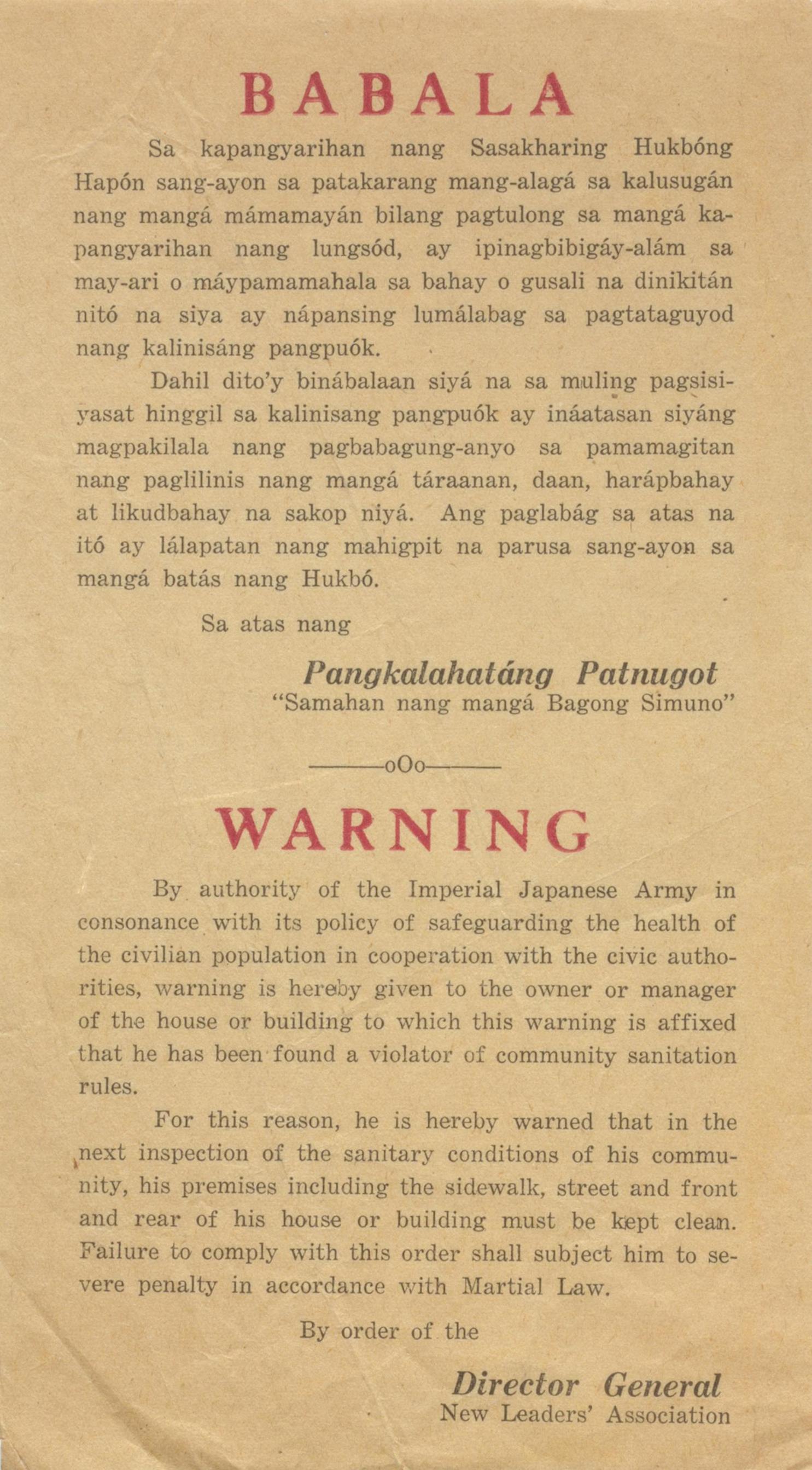|
Francisco Alonso Liongson
Francisco Alonso Liongson Jr. (July 1, 1896 – May 14, 1965) was a Filipino writer and playwright. He was born into an ''Ilustrado'' family from Pampanga, Philippines at the turn of the 20th century and raised with the revolutionary values of an emerging Philippine identity which held freedom, justice, honor, patriotism and piety sacred. He witnessed the rapid changes that transformed the Philippines from a repressed society cloistered in a Spanish convent for over 300 years into modern, hedonistic consumers of American Hollywood glamor for 50 years. This period of transition brought instabilities to core family values as the generation gaps wreaked havoc on the social, political, economic and political foundations of a young nation. It was a period of experimentation where the natives began to grapple a new democratic way of life and self-rule; where sacred paternalistic relationships were giving way to egalitarian modes; where traditional gender and familial roles were questione ... [...More Info...] [...Related Items...] OR: [Wikipedia] [Google] [Baidu] |
Bacolor
Bacolor, officially the Municipality of Bacolor ( pam, Balen ning Bakúlud; tgl, Bayan ng Bacolor), is a 3rd class municipality in the province of Pampanga, Philippines. According to the 2020 census, it has a population of 48,066 people. Bacolor is the birthplace of Father Anselmo Jorge de Fajardo, considered the "Father of Kapampangan literature" for writing the 1831 Kapampangan " kumidya" ''Don Gonzalo de Cordova''. Bacolor is from San Fernando, from Angeles, and from Manila. History Don Guillermo Manabat, a rich landlord, is believed to be the founder of Bacolor in 1574. Historical records show that Bacolor has been in existence as a proposed settlement as early as 1571, the same year Manila was founded by the Spanish. When the Spaniards arrived in Bacolor they found ''Bakúlud''; its original name meant "level ground" because the site was formerly part of the Luzon coastline until eruptions from Mount Pinatubo raised it above the ocean floor. The first settlers of Bac ... [...More Info...] [...Related Items...] OR: [Wikipedia] [Google] [Baidu] |
Don Quixote
is a Spanish epic novel by Miguel de Cervantes. Originally published in two parts, in 1605 and 1615, its full title is ''The Ingenious Gentleman Don Quixote of La Mancha'' or, in Spanish, (changing in Part 2 to ). A founding work of Western literature, it is often labelled as the first modern novel and one of the greatest works ever written. ''Don Quixote'' is also one of the most-translated books in the world. The plot revolves around the adventures of a member of the lowest nobility, an hidalgo from La Mancha named Alonso Quijano, who reads so many chivalric romances that he either loses or pretends to have lost his mind in order to become a knight-errant () to revive chivalry and serve his nation, under the name . He recruits a simple farmer, Sancho Panza, as his squire, who often employs a unique, earthy wit in dealing with Don Quixote's rhetorical monologues on knighthood, already considered old-fashioned at the time, and representing the most droll realism in contr ... [...More Info...] [...Related Items...] OR: [Wikipedia] [Google] [Baidu] |
Dramatic Philippines
Dramatic may refer to: * Drama, a literary form involving parts for actors * Dramatic, a voice type classification in European classical music, describing a specific vocal weight and range at the lower end of a given voice part * Dramatic soprano, a strong voice which can be heard over an orchestra * ''Dramatic'' (album), an album by Casiopea * The Dramatics, 1960s American soul music vocal group * "Dramatic", a 2019 song by the South Korean girl group Bvndit See also * Drama (other) Drama is a form of fiction represented in performance in a theatre or on radio or television. Drama may also refer to: Subgenres of drama * Drama (film and television), a genre of film and television series with an intent for a serious tone * Com ... * Dramatica (other) {{disambiguation ... [...More Info...] [...Related Items...] OR: [Wikipedia] [Google] [Baidu] |
Tydings–McDuffie Act
The Tydings–McDuffie Act, officially the Philippine Independence Act (), is an Act of Congress that established the process for the Philippines, then an American territory, to become an independent country after a ten-year transition period. Under the act, the 1935 Constitution of the Philippines was written and the Commonwealth of the Philippines was established, with the first directly elected President of the Philippines. (Direct elections to the Philippine Legislature had been held since 1907.) It also established limitations on Filipino immigration to the United States. The act was authored in the 73rd United States Congress by Senator Millard E. Tydings ( Dem.) of Maryland and Representative John McDuffie ( Dem.) of Alabama, and signed into law by President Franklin D. Roosevelt. Provisions The Tydings–McDuffie Act specified a procedural framework for the drafting of a constitution for the government of the Commonwealth of the Philippines within two years of its enact ... [...More Info...] [...Related Items...] OR: [Wikipedia] [Google] [Baidu] |
National Economic Protectionism Association
The National Economic Protectionism Association (NEPA) is the oldest local non-government organization in the Philippines having been established in 1934. The non-government organization was established by Filipino industrialists with the intention of protecting domestic industries, owned by Filipinos, against dominion by foreign interests and competition. Through the years of its existence, it has gone through a number of leadership changes and policy tacks. During its heyday, its leaders held key positions in the government and were actively promoting Filipino industries. It has offices at Francesca Towers, along Epifanio de los Santos Avenue (EDSA) in Diliman, Quezon City. In the 21st century, NEPA is under revitalization with mass organizing and networking with other Filipino organizations. From local organizations of small and medium enterprises (SMEs) and Filipino industrialists to inventors societies and producers. From a network of nationalist government officials and e ... [...More Info...] [...Related Items...] OR: [Wikipedia] [Google] [Baidu] |
Epifanio Matute
Epifanio G. Matute was a Filipino playwright. Biography Epifanio G. Matute was a reporter for ''Mabuhay'' under MSCD (Debate, Monday Mall, Herald, Mabuhay). He was an editor for ''Sampaguita'', ''Mabuhay'' and ''Pagsilang''. He also contributed to ''Liwayway'' and ''Malaya''. His play, ''Kuwentong Kutsero'', is his most famous work, and he became a leading Philippines' playwright A playwright or dramatist is a person who writes plays. Etymology The word "play" is from Middle English pleye, from Old English plæġ, pleġa, plæġa ("play, exercise; sport, game; drama, applause"). The word "wright" is an archaic English ... under Narciso Pimentel Jr.'s direction. References Year of birth missing (living people) Filipino dramatists and playwrights Filipino writers Living people {{Philippines-writer-stub ... [...More Info...] [...Related Items...] OR: [Wikipedia] [Google] [Baidu] |
Sweepstakes
A sweepstake is a type of contest where a prize or prizes may be awarded to a winner or winners. Sweepstakes began as a form of lottery that were tied to products sold. In response, the FCC and FTC refined U.S. broadcasting laws (creating the anti-lottery laws). Under these laws sweepstakes became strictly "No purchase necessary to enter or win" and "A purchase will not increase your chances of winning", especially since many sweepstakes companies skirted the law by stating only "no purchase necessary to enter", removing the consideration (one of the three legally required elements of gambling) to stop abuse of sweepstakes. Today, sweepstakes in the United States are used as marketing promotions to reward existing consumers and to draw attention to a product. By definition, the winner is determined by pure random chance rather than skill. Marketing Sweepstakes with large grand prizes tend to attract more entries regardless of the odds of winning. Therefore, the value of smal ... [...More Info...] [...Related Items...] OR: [Wikipedia] [Google] [Baidu] |
Hare–Hawes–Cutting Act
The Hare–Hawes–Cutting Act passed to authors Congress Butler B. Hare, Senator Harry B. Hawes and Senator Bronson M. Cutting. (ch. 11, , enacted January 17, 1933) The Hare–Hawes–Cutting Act was the first US law passed setting a process and a date for the Philippines to gain independence from the United States. It was the result of the OsRox Mission led by Sergio Osmeña and Manuel Roxas. The law promised Philippine independence after 10 years, but reserved several military and naval bases for the United States, as well as imposed tariffs and quotas on Philippine imports. By 1932, two main groups supported a law outlining the specifics of Philippine independence: Great Depression-era American farmers competing against tariff-free Filipino sugar and coconut oil; and Filipinos seeking Philippine independence. The Hare–Hawes–Cutting Act was authored by South Carolina Representative Butler Hare, Missouri Senator Harry Bartow Hawes and New Mexico Senator Bronson M. Cutt ... [...More Info...] [...Related Items...] OR: [Wikipedia] [Google] [Baidu] |
Antonio Abad
Antonio Abad y Mercado (May 10, 1894 – April 20, 1970), was a prominent Filipino poet, fictionist, playwright and essayist. Personal life Antonio Abad y Mercado was born in Barili, Cebu, under the Captaincy General of the Philippines, on 10 May 1894. He was educated at the University of San Carlos, Colegio-Seminario de San Carlos in Cebu City. He married Kampampangan teacher Jesusa Henson y Aquino., and had three sons: Gémino Abad, Gémino, Antonio Jr., and Edmundo. Career Abad frequently wrote in both, his native language, Cebuano, and Spanish. He was a strong advocate of the Spanish language and Hispanic-Filipino culture when it was discouraged during the American colonial period in the Philippines. Abad was one of the leading contributors of Hispanic-Filipino literature during his time, producing novels and plays criticizing the occupation of the islands by the Americans. His works would later be known as part of the Golden Age of Fil-Hispanic Literature (1898-1941). Tw ... [...More Info...] [...Related Items...] OR: [Wikipedia] [Google] [Baidu] |
Japanese Occupation Of The Philippines
The Japanese occupation of the Philippines (Filipino: ''Pananakop ng mga Japones sa Filipinas''; ja, 日本のフィリピン占領, Nihon no Firipin Senryō) occurred between 1942 and 1945, when Imperial Japan occupied the Commonwealth of the Philippines during World War II. The invasion of the Philippines started on 8 December 1941, ten hours after the attack on Pearl Harbor. As at Pearl Harbor, American aircraft were severely damaged in the initial Japanese attack. Lacking air cover, the American Asiatic Fleet in the Philippines withdrew to Java on 12 December 1941. General Douglas MacArthur was ordered out, leaving his men at Corregidor on the night of 11 March 1942 for Australia, 4,000 km away. The 76,000 starving and sick American and Filipino defenders in Bataan surrendered on 9 April 1942, and were forced to endure the infamous Bataan Death March on which 7,000–10,000 died or were murdered. The 13,000 survivors on Corregidor surrendered on 6 May. Japan occupie ... [...More Info...] [...Related Items...] OR: [Wikipedia] [Google] [Baidu] |
Jacinto Benavente
Jacinto Benavente y Martínez (12 August 1866 – 14 July 1954) was one of the foremost Spanish dramatists of the 20th century. He was awarded the Nobel Prize for Literature in 1922 "for the happy manner in which he has continued the illustrious traditions of the Spanish drama". Biography Born in Madrid, the son of a celebrated pediatrician, he returned drama to reality by way of social criticism: declamatory verse giving way to prose, melodrama to comedy, formula to experience, impulsive action to dialogue and the play of minds. Benavente showed a preoccupation with aesthetics and later with ethics. A liberal monarchist and a critic of socialism, he was a reluctant supporter of Francoist Spain as the only viable alternative to what he considered the disastrous republican experiment of 1931–1936. In 1936 Benavente's name became associated with the assassination of the Spanish poet and dramatist Federico García Lorca. This happened when the Nationalist newspapers ''Estampa'', ... [...More Info...] [...Related Items...] OR: [Wikipedia] [Google] [Baidu] |




.jpg)